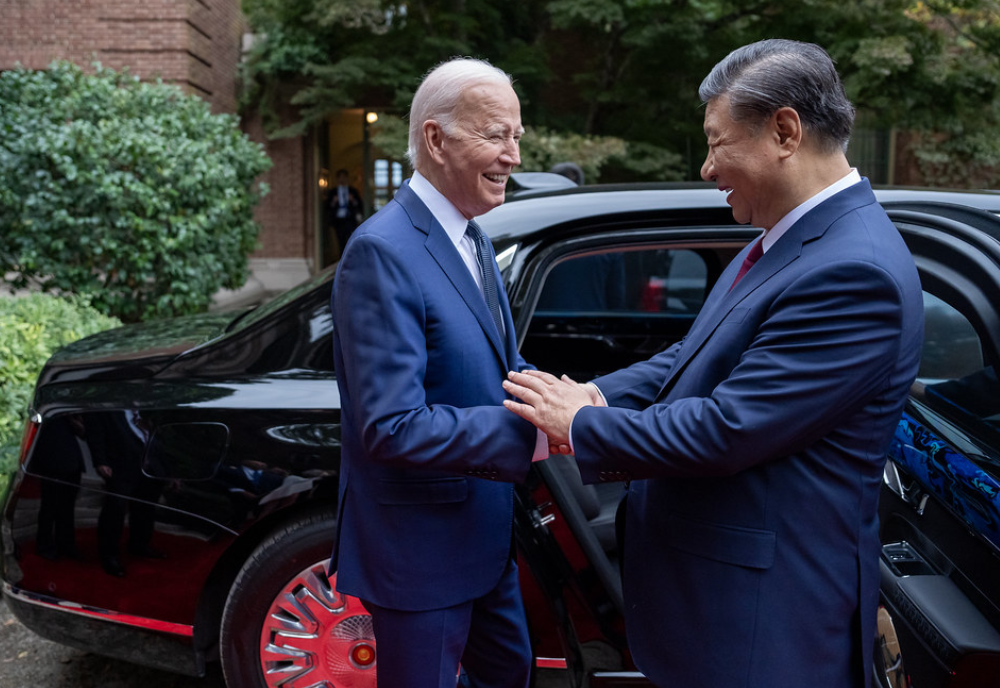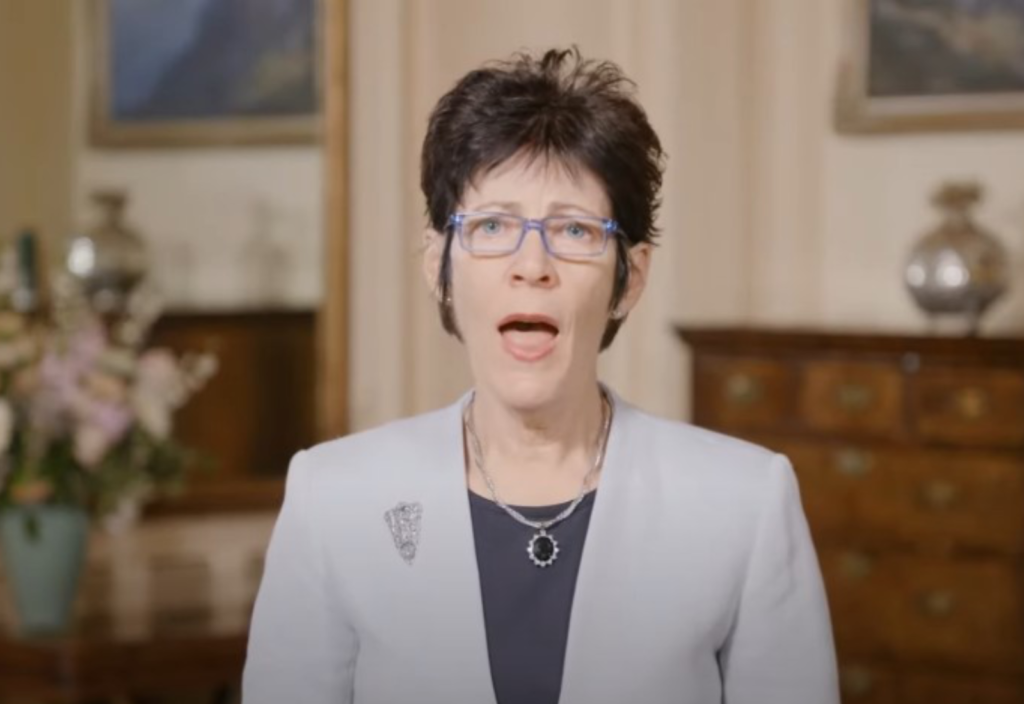At the ALP national conference earlier this month, Pat Conroy, Minister for Defence Industry and Minister for International Development and the Pacific, ruffled feathers when he declared that one is either pro-AUKUS or an appeaser of Beijing. This was all the more remarkable because he is from the ALP Left.
Left-wing delegates argued that dissent and debate on such an important matter have to be allowed. They do. Whereas in China no one can openly or systematically challenge the dictatorial policies of Xi Jinping, including his alarming militarisation of China’s foreign policy, in Australia there is and should be a lively debate about such things.
The latest dissenting contribution to debate about AUKUS and the nuclear submarines is Sam Roggeveen’s The Echidna Strategy: Australia’s Search for Power and Peace, released in late August by Black Inc.
Roggeveen, Director of the Lowy Institute’s International Security Program, is not an appeaser, but he does very systematically criticise emerging strategic policy and force structure and urge a radically different approach to foreign and defence policy.
His book should be read and discussed as widely as possible, based on the principles laid out by John Stuart Mill in On Liberty (1859) regarding freedom of speech. Timothy Garton Ash enlarged on and updated Mill’s argument, in his 2016 book Free Speech: Ten Principles for a Connected World. He hoped to see those principles accepted globally.
One of our greatest concerns about Xi Jinping’s China is that no such principles hold there. But we should be rightly proud of our tradition of adhering to them.
We are currently engaged in several important national debates and, if the principles espoused by liberals like Mill and Ash are valid, we should be exercising them in these debates.
One of those principles is that we should seek out the strongest objections to our beliefs in order to test them, on the basis that this is the best test for them. The Echidna Strategy is a very strong objection to our national security policy. If the now strongly bipartisan commitment to both AUKUS and ANZUS can meet the challenges set out in this book, we could all have more confidence in it.
I have known Roggeveen for 25 years and have observed his career in the intelligence world and at Lowy, since it started. He is quietly thoughtful. Whereas many of those who have dissented from AUKUS come across as rancorously Left-wing, anti-American and even pro-Beijing, none of these things can be said of him.
He is a liberal conservative whose political outlook has been shaped by Edmund Burke, the American Founding Fathers and Michael Oakeshott. I have known him to hold these values throughout our friendship. In his introduction to the book, he states:
The conservatism I defend is marked not by any specific ideological or policy agenda but merely by a preference for moderation over extremism, tradition over ideology, evolution over revolution and a deep suspicion of utopianism… A proper respect for the profession of arms and admiration for those who have sacrificed in the defence of the nation is perfectly consistent with conservatism.
With this predisposition, he asks searching questions about the direction and sustainability of our bipartisan strategic policy consensus – then recommends the most radical adjustments imaginable.
“I am not,” he states, “a China ‘dove’” – a label often applied to commentators who excuse Beijing’s excesses on the world stage. He continues:
I have spent the last sixteen years at the Lowy Institute writing about the breathtaking pace of China’s military modernisation, and for eight years before that I watched it from inside Australia’s intelligence world.
His published arguments bear this out. He knows what he is talking about – in detail.
The case he makes is that our grand alliance is unlikely to hold the line against China’s rise and could trigger World War III, which none of us should want. The United States is likely, step by step, to pull back from East Asia, not hold the line. We need, therefore, to adopt a defensive, area denial strategic posture in which our vast distance from China and the potential for a strong strategic alliance with Indonesia will be the buttresses of our security. We can do this cost-effectively, he argues.
As he confesses, this argument is based on a prolonged ‘dialogue’ with Hugh White and the late Allen Gyngell about how to reshape Australia’s security in the emerging era.
But The Echidna Strategy is more systematic and better grounded in first principles than the work of his mentors, of which I have been a critic for 20 years. He makes a very interesting case for Australia radically reshaping its force structure and strategic policy to render us very difficult to attack without our being provocative.
His book should be read widely and closely. That said, as he acknowledges, the obstacles in the way of the changes he urges are formidable and the uncertainties grave. The reallocation of resources and effort would be extraordinary, the challenges to our diplomatic corps and intelligence agencies enormous and the costs, in terms of our military capabilities, probably irreversible.
Moreover, he makes the troubling statement that, in order to get along with Indonesia and in an Asian world in which a dictatorial China was the predominant power, we would have to give up all ideas of a liberal, rules-based international order, with liberal political principles as a common aspiration and with human rights as a universal set of commitments or obligations. We would have to become more ‘pragmatic’ he writes and ‘more ruthless’.
This is all very troubling precisely from the liberal-conservative standpoint that he professes. Plainly, if his recommendations are to get any traction, we can’t be giving up the liberal principles of freedom of expression and critical inquiry. Nor should we want to retreat to a world of mercantilism, or from universal human rights.
There is a great deal at stake. That’s why the ‘Quad’ and AUKUS have arisen. Are they our best defence? Roggeveen thinks they’re not. Read his book and keep thinking.
If you wish to republish this original article, please attribute to Rationale. Click here to find out more about republishing under Creative Commons.
Photo by Enguerrand Blanchy on Unsplash.














